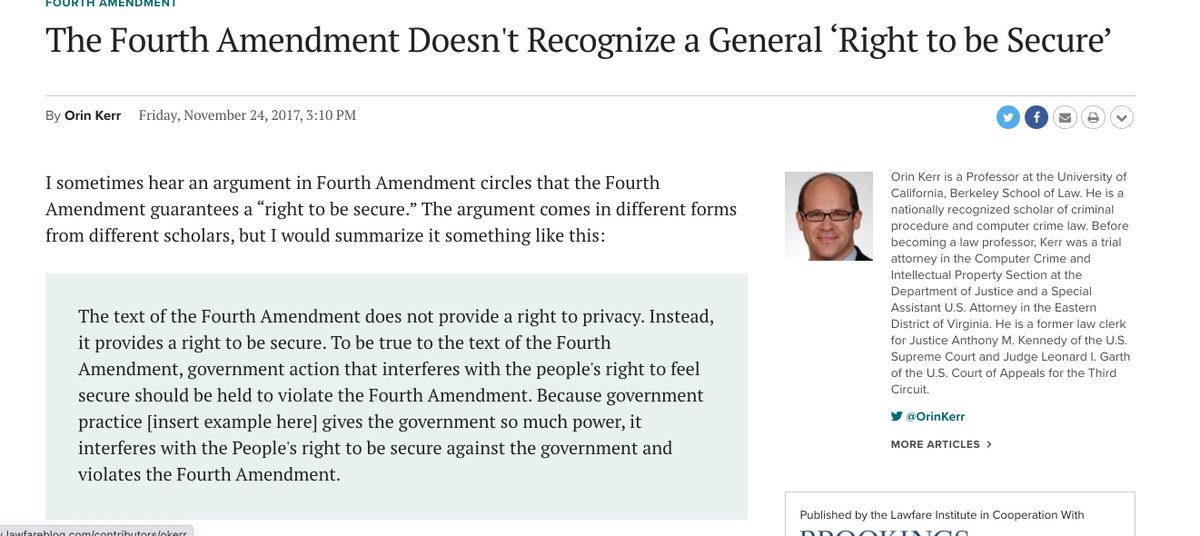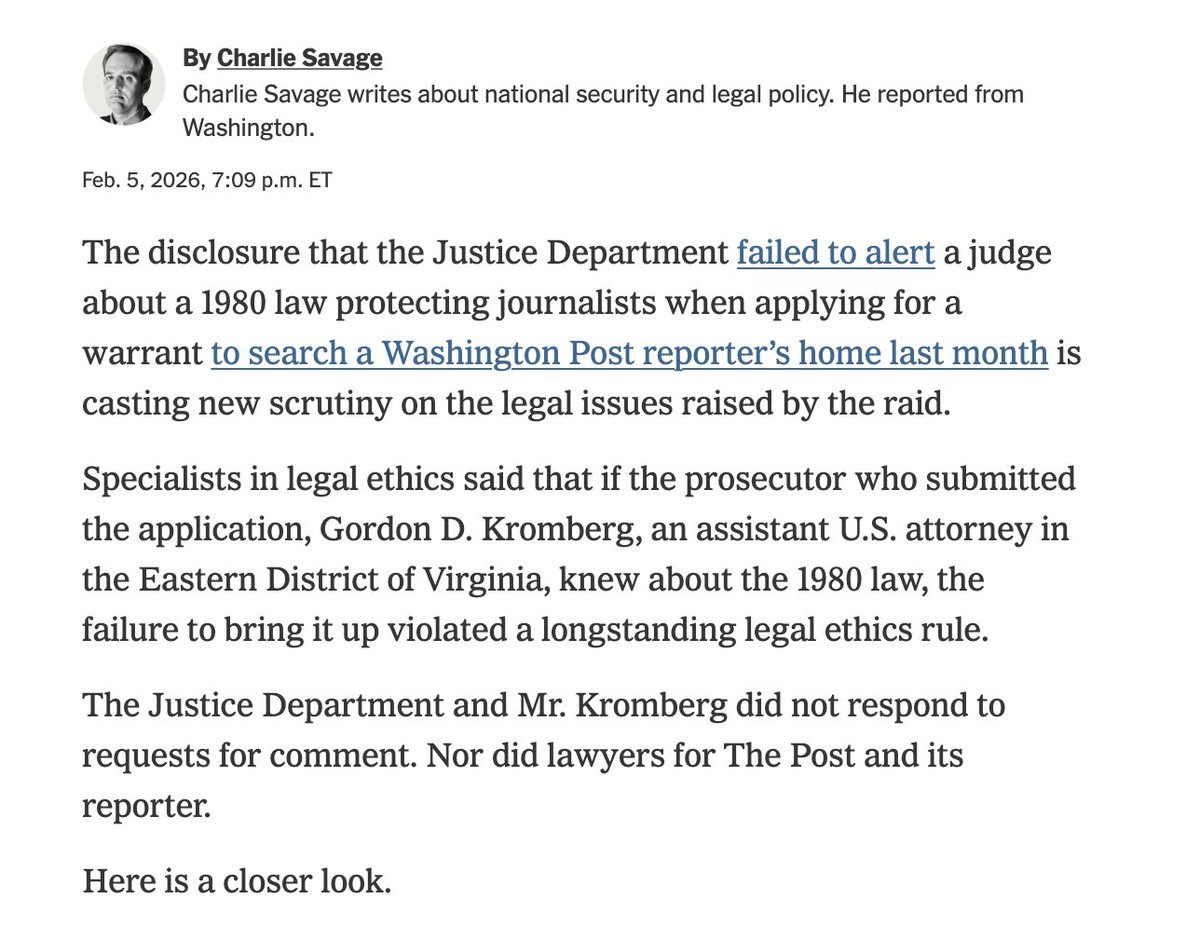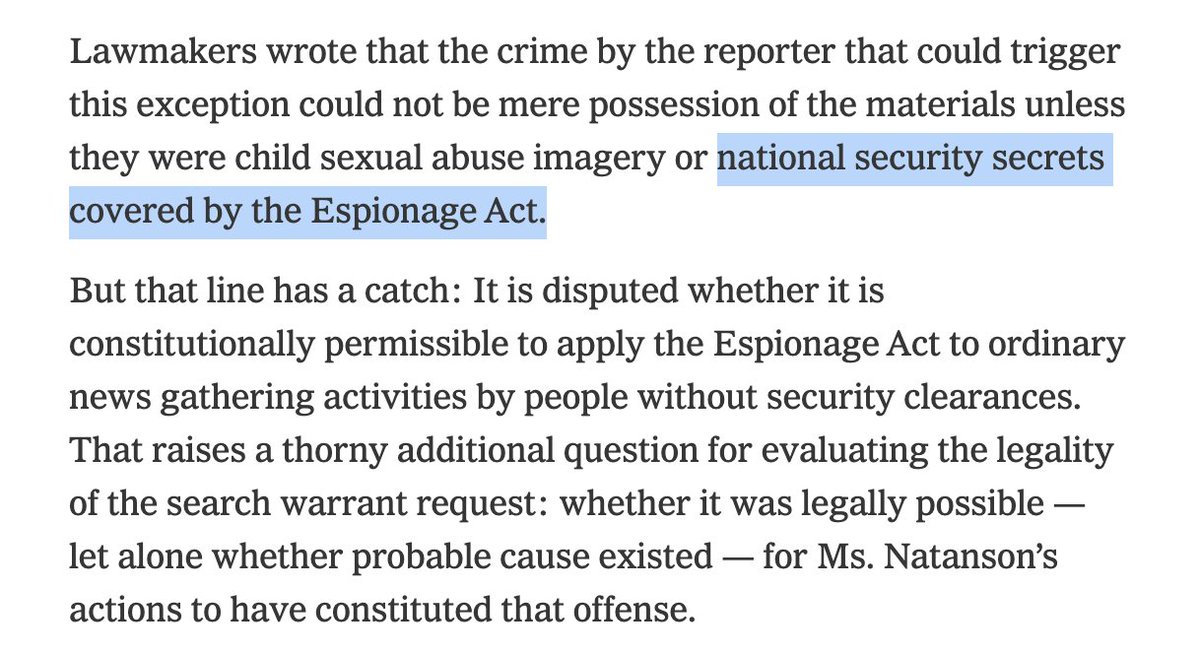It's interesting that the Supreme Court in Torres v. Madrid opted for the "right to be secure" description of the 4th Amendment. As far as I can recall, that's a first for the Supreme Court.
Might be important. A thread.
supremecourt.gov/opinions/20pdf…
Might be important. A thread.
supremecourt.gov/opinions/20pdf…

The idea that the 4A provides a "right to be secure" has been floating around 4A scholarship for the last 15 years. But as far as I know, the Supreme Court has never suggested it before. It has stuck to the constitutional text, which it seems to me is narrower.
I wrote a blog post on the "right to be secure" claim in 2017. At least in the scholarship, it it is used generally to argue for a broader application of the 4A. lawfareblog.com/fourth-amendme… 

As my 2017 blog post says, I don't think there's a general "right to be secure" in persons, etc. from the text. The text is a lot narrower than that: 

In Torres, though, Chief Justice Roberts introduces the case with the (first-ever, I think, in a SCOTUS case) claim that there is a general right to be secure in persons, etc. And he comes back to it later in the opinion, at least sort of. 

Will this matter going forward? It's hard to know. But it was worth flagging, I think.
P.S. I have a vague recollection that Justice Sotomayor may have suggested the "right to be secure" at some point, maybe in an oral arg? This is pure speculation, but maybe she suggested it, and the Chief added it to get 5, as Torres was 5-3. Who knows.
• • •
Missing some Tweet in this thread? You can try to
force a refresh






















